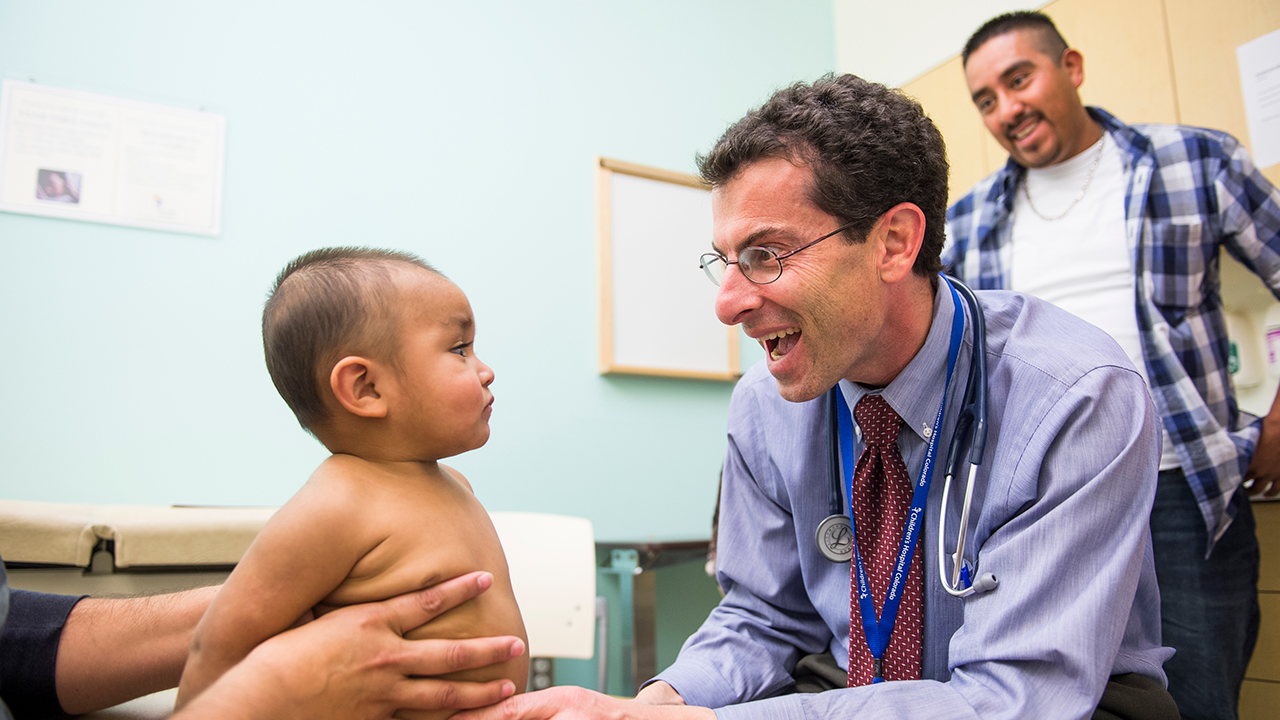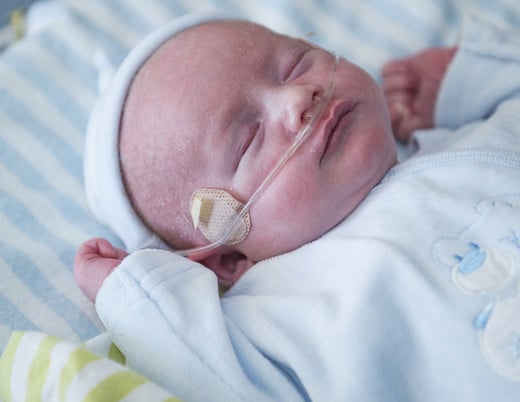When it comes to Trikafta, pediatric pulmonologists Scott Sagel, MD, and Edith Zemanick, MD, don't mince words.
"It's the best treatment for cystic fibrosis ever," says Dr. Sagel, "no question."
"It's a breakthrough,”" echoes Dr. Zemanick. "The most effective we've seen."
Approved by the FDA in late 2019, Trikafta combines three rescue therapies for the cystic fibrosis transmembrane conductance regulator, or CFTR, the defective protein that results from the more than 1,900 mutations implicated in cystic fibrosis (CF).
A paradigm shift in cystic fibrosis care
By targeting F508del, the most common mutation, Trikafta substantially improves CF markers like sweat chloride, lung function and rates of infection. And once it's approved for patients younger than 12, it's expected to work for 90% of them.
That kind of broad efficacy represents a paradigm shift for specialists at Children's Hospital Colorado's Cystic Fibrosis Center, the largest CF referral center in the nation. Which means the work of clinician-researchers like Drs. Sagel and Zemanick is far from done.
Next steps in cystic fibrosis research
On their plate currently: four major Cystic Fibrosis Foundation-sponsored, multicenter studies that aim to better understand the therapy's biology and long-term effectiveness — and zero in on the next paradigm.
1. PROMISE
CF impacts organ systems throughout the body, from the lungs to the sweat glands to the digestive tract. The clinical trials for Trikafta measured clinical outcomes including lung function, growth, pulmonary exacerbations and patient reporting on quality of like. But they didn't study many comorbidities, including airway infection, mucus biology, liver disease and CF-related diabetes, to name a few.
The PROMISE study, nationally co-led by Dr. Sagel and pediatric hepatologist Michael Narkewicz, MD, digs deeper. By analyzing sweat, blood, sputum, urine and bronchoalveolar lavage fluid samples from more than 400 patients at 50 national sites, investigators are gathering a detailed picture of Trikafta's effects on organ systems throughout the body.
Children's Colorado's two Cystic Fibrosis Foundation-designated National Resource Centers, the Center for Biochemical Markers and the Center for Sweat Analysis, will process and analyze samples focused on systemic inflammation and sweat chloride measurements.
2. CHEC-SC
Clinical trials for Trikafta showed the treatment produced a reduction in sweat chloride, the marker by which CF is diagnosed. Nationally co-led by Dr. Zemanick, the CHEC-SC study is enrolling more than 5,000 patients nationwide to understand: 1. The factors that contribute to that reduction, and 2. How sweat chloride values relate to long-term outcomes.
"If we can understand how well the patient is responding to these modulators," says Dr. Zemanick, "maybe we can reduce the burden of treatment."
3. SIMPLIFY
That burden is enormous. Patients spend one or two hours every day just breaking up airway mucus.
The SIMPLIFY study will examine the possibility of safe withdrawal from standard of care therapies like inhaled mucolytics. Along with studies like PROMISE and CHEC-SC, SIMPLIFY aims to reduce the time patients spend dealing with CF.
"We've never been able to consider taking patients off therapies," says Dr. Sagel. "This is the first time we think the burden of treatment is going to go down."
4. RARE
Ninety percent efficacy leaves 10% of patients behind. Dr. Sagel doesn't mince words about that, either: "It's not good enough. We need 100% of patients on highly effective treatment."
As one of six national site leaders for the RARE study, Dr. Zemanick is collecting cells from patients with rare mutations to put toward a national culture bank that will be used to test and ID potential new therapies for future development.
Featured Researchers

Scott Sagel, MD, PhD
Pulmonologist
Children's Hospital Colorado
Professor
Pulmonary Medicine - Department of Pediatrics
University of Colorado

Edith Zemanick, MD
Associate Director of the Cystic Fibrosis Research Center
Children's Hospital Colorado
Professor
Pulmonary Medicine - Department of Pediatrics
University of Colorado

Michael Narkewicz, MD
Pediatric hepatologist
Digestive Health Institute
Children's Hospital Colorado
Professor
Pediatrics-Gastroenterology, Hepatology and Nutrition
University of Colorado School of Medicine





 720-777-0123
720-777-0123










